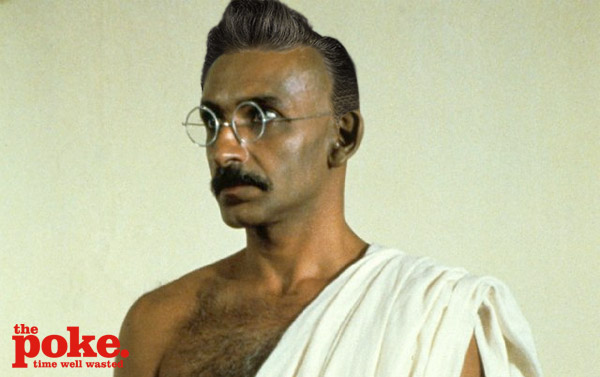Knives Out by Rian Johnson. Caden Mark Gardner: Top 25 Films of 2019. Mark Kermode: 10 Best Films of 2020; Glenn Kenny: Notable Films of 2020; Vogue: The Best. Knives Out reviewed by Mark Kermode Mark Kermode reviews Knives Out. Rian Johnson returns from his stint in the Star Wars universe with a love letter to his beloved Agatha Christie murder mysteries.
Set in 16th century Venice, Shakespeare's timeless comedy/ drama follows the fate and fortunes of a group of Christian noblemen and their interactions with the Jewish merchant and moneylender Shylock.
(Edited highlights of the panel's review taken from the teletext subtitles that are generated live for Newsnight Review.)
MARK LAWSON:
Julie, a great theatre name, Shakespeare, great cinema name, Pacino. Do they work together?
JULIE MYERSON:
No. It was very boring. That's not true. It wasn't terrible, but it was so standard. There were so many missed opportunities. I thought it felt like a school outing. I almost took one of my kids to it. I am so glad I didn't, because I am intensely anxious not to put them off Shakespeare. I can't see the point of making a film of a Shakespeare play without doing what Baz Lurhmann did with Romeo & Juliet or even Zeffirelli years ago and startling us - doing something different with it. I wanted to see dirt, I wanted to smell Venice I thought it was so like an oil painting, rather dreary actually.
MARK KERMODE:
A lot of it looks like The Godfather, people having dark conversations in dark rooms. My problem is the problem with the play. When I read this when I was at school, I thought it was a horrible play, I thought it was wildly anti-Semitic. But seeing this version, I thought it brought the problems home to roost. There is a reason why people don't make The Merchant of Venice into a film very often. It is a problematic text. They play it straight so at the end you are left with a Shylock with as much sympathy as any movie monster has. I also had a problem, at the opening, there was a disclaimer that said when these events took place, there was a lot of anti-Semitism around. As soon as you start putting disclaimers on the front, you are on troubled ground.
MARK LAWSON:
I think the beginning of the film is important. You can argue about the caption. Is it anti-Semitic? There is the famous speech, but after the word prologue caption, he puts in a little scene in which we see Shylock being spat at. Clearly, he is thinking about situations around the world - Ireland, the Middle East - showing how racism breeds racism, hatred breeds hatred?
MARK KERMODE:
There is an attempt to contextualise it. I don't believe for a minute that any of them would have wanted to do a liberal, humanist production of it. But the problem is, when you play that straight, particularly at the end during the pound of flesh scene, Shylock emerges as a man more hideous than his circumstance explains. It comes down to a basic problem with the text, which is that the text thinks that Shylock is a creepy, villainous character in a very pantomimey archetypal sort of way.
Mark Kermode Knives Outlet
JAMES BROWN:
I like Shylock. I hate to be the voice of reason but the casting was so top- heavy. You might as well have called it Waiting for Shylock. You had a range of comics. You had Rab C Nesbitt, you had Gareth from The Office, you had Portia on her island basically doing Blind Date. At the end, there are the two great scenes. One when he comes out of the brothel, when he says, 'Do we bleed?' And so on. And then the climax, you have these powerful scenes and it's a schizophrenic play. Is he writing a pantomime, where two girls decide to dress up as men to fool their boyfriends, or is he doing drama?
MARK KERMODE:
That's exactly it. It's neither comedy nor tragedy. What Radford has done is aired towards tragedy, but I don't think that that is right.
Mark Kermode Knives Out Book
JULIE MYERSON:
If there is any point in filming it, isn't it to make us revolted by the pound of flesh. And when they got their knives out, there was a bare-chested moment but it should have been darker.
MARK KERMODE:
That bare-chested moment is hideous. I think, uniquely in Shakespeare plays, it's one of those cases in which the director is really good and the writer is really bad. I think Radford's direction is better than Shakespeare's text deserves actually.
MARK LAWSON:
You really think that he is better?
MARK KERMODE:
Yes, he is better than the text deserves.
JAMES BROWN:
If you read many more, you will come to think Shakespeare is overrated.
MARK LAWSON:
But I don't think that. I think it is an atmospheric production, he has used Venice very well. He has treated the text very cleverly. If you look at what he has done, it's an intelligent adaptation. He has kept virtually all the language, but if there is a word that might trip up a modern audience - when it's 'foot me' it becomes 'kick me' - and there is huge attention played to the text.

Mark Kermode Knives Out Series
JULIE MYERSON:
But that makes it teacherly. The only risky bit was when he added in a little bit of early back history of his own, and that worked. I wish he had done that more often and taken more liberties. It's like a textbook production, I think.
